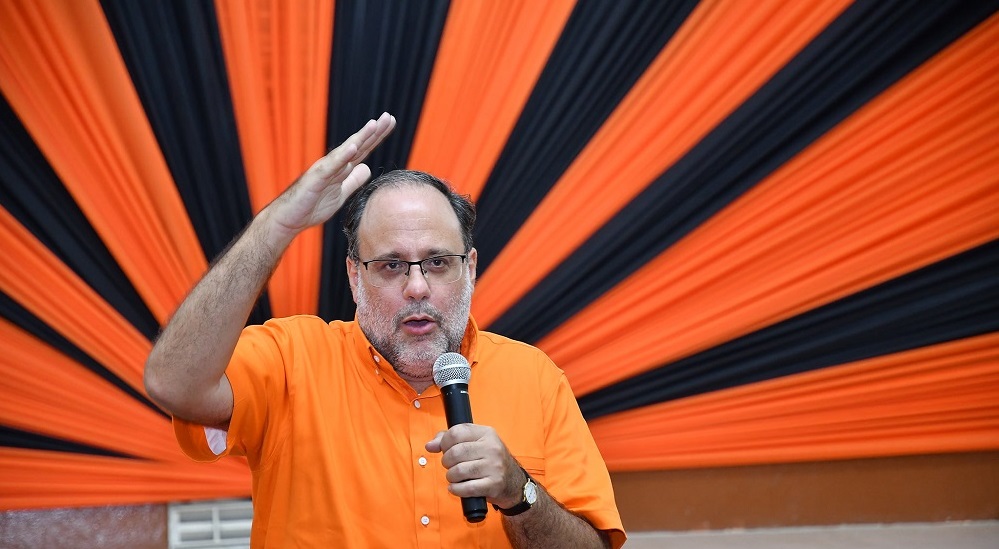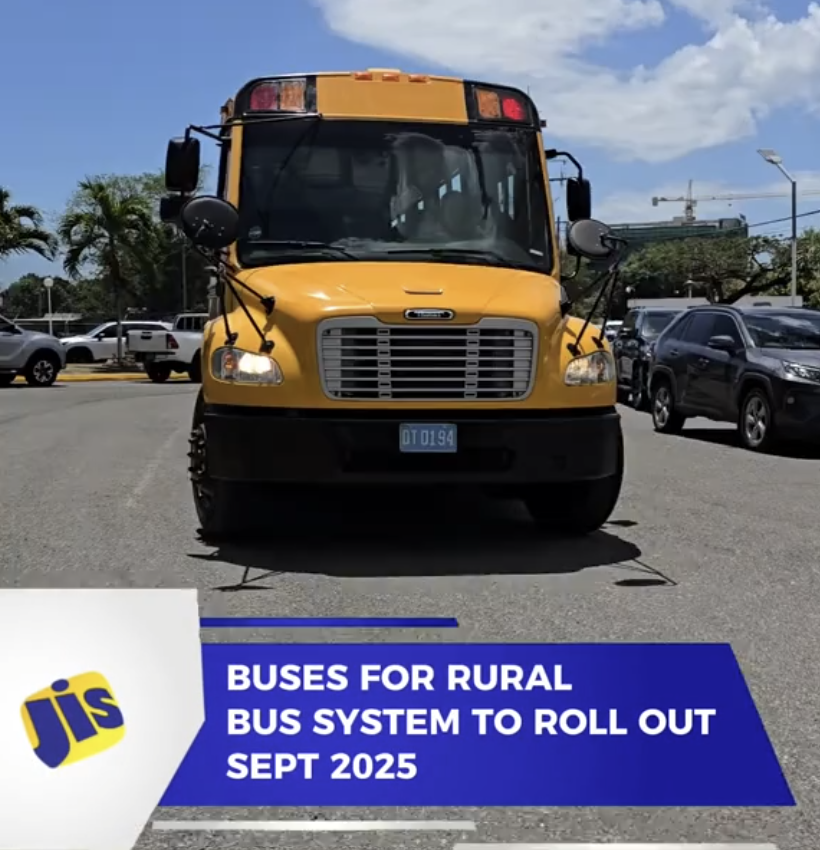The recent rollout of new school buses across rural Jamaica has stirred up a strong reaction—not just from students and families who welcome the change, but also from political leaders. In particular, opposition leader Mark Golding’s rejection of the buses has left many surprised and even puzzled. His comments sparked a heated debate about progress, tradition, and what’s best for students in rural communities. This post takes a detailed look at what’s happening, why the opposition pushes back, and what this means for Jamaica’s educational future.

The Government’s New School Bus Initiative
The Jamaican government has launched a large-scale program to introduce hundreds of new school buses in rural areas. This move aims to transform student transportation by providing safer, dedicated vehicles for kids to get to school. The initiative offers several clear benefits:
The Jamaican government has launched a large-scale program to introduce hundreds of new school buses in rural areas. This move aims to transform student transportation by providing safer, dedicated vehicles for kids to get to school. The initiative offers several clear benefits:
- Safer travel for students, reducing risks of using overcrowded or unreliable public transport
- A source of pride and excitement for kids riding a bus for the first time
- Less pressure on existing public transport systems, freeing up space for other passengers
This approach aligns with how some countries, like the United States, use dedicated yellow school buses to serve students, providing a reliable and secure transport option.
How Students and Communities Are Responding
The reaction from students and families has been overwhelmingly positive. Many rural students are experiencing the joy of catching a bus to school for the first time. One young boy, for instance, was visibly proud and excited as he stepped onto the bus, a clear sign of how meaningful this change is. Families, especially in underserved areas, appreciate the relief these buses bring by easing daily travel struggles.
This enthusiastic response shows a community ready to embrace progress and better support student needs.
Mark Golding’s Surprising Criticism
Despite the positive impact, Mark Golding described the new buses as “old buses coming out of the country,” implying that they were worn out or substandard. This statement seems to dismiss the government’s effort and investment in the program. His tone struck many as disrespectful toward the minister and the team behind the initiative.
Golding’s dismissal contrasts sharply with the pride seen on students’ faces and the clear benefits for families. His remarks come across as more than just criticism—they seem to undermine progress.
What Does the Opposition Offer Instead?
Golding proposes a different approach: instead of dedicated school buses, he suggests subsidizing taxi and bus operators so they can transport students. A subsidy is a financial support from the government aimed at helping businesses or individuals take on specific costs.
Under this plan, existing private transport providers would receive funds to carry students, rather than the government supplying exclusive school buses. The idea is to empower private operators financially and ease family transportation costs.

Jamaica’s Colonial Transport Influence
Golding’s subsidy plan echoes the traditional English model of school transport, where students often use public buses or contracted mini-coaches, not dedicated vehicles. This choice reflects a colonial transport system Jamaica inherited, which contrasts with the American style of bright yellow school buses serving only students.
This serves as a reminder that transportation choices carry cultural and historical meaning. Golding’s preference signals a desire to maintain older systems rather than fully adopt new, independent models.
Comparing Transport Models
| Feature | American School Bus Model | English Public Transport Model |
|---|---|---|
| Dedicated student buses | Yes, yellow buses just for schools | No, students use public or contracted buses |
| Focus on student safety | High | Varies |
| Impact on public transport | Frees space for other passengers | Students share space with public passengers |
What the School Buses Mean for Jamaica’s Progress
Dedicated school buses are more than just vehicles; they symbolize Jamaica’s steps toward modernization, progress, and breaking with old colonial patterns. By rolling out its own fleet, Jamaica sends a message it’s ready to chart an independent path with solutions tailored to its needs.
This project reflects a clear commitment to improving education access and safety, which are vital for national growth.
Leadership and Judgment: A Critical View
The sharp criticism from Golding led to concerns about his judgment and whether the current opposition leadership is fit to guide Jamaica forward. Leadership requires sensible decision-making based on the country’s best interests, especially when it comes to education, the economy, and security.
The refusal to embrace a program widely seen as beneficial raises questions about the opposition’s ability to support real progress. Good governance depends on clear, forward-thinking leadership.
What Good Leadership Looks Like
- Embraces solutions that improve lives
- Supports practical investments in the future
- Values the voices and needs of local communities
- Stands behind policies that bring real change
Contradictions in the Opposition’s Position
Golding’s statement that the buses are “old” contradicts his plan to rely on existing taxis and buses, many of which are newer than the government’s fleet.
Here are some key contradictions:
- Criticizing government buses as “old”
- Supporting the use of private vehicles that may be newer
- Rejecting a dedicated school transport system despite clear benefits
These mixed messages weaken the opposition’s stance and create confusion about their real priorities.
How New School Buses Help Rural Communities
For students in rural Jamaica, daily travel to school can be a struggle. The new buses bring practical improvements:
- Shorter and safer travel times
- Less dependence on overcrowded public vehicles
- Improved school attendance thanks to reliable transport
Above all, the buses restore dignity and pride to rural areas, where families feel seen and supported.
Comparing Subsidies vs. Dedicated Buses
Here’s a quick look at the pros and cons of both models:
| Aspect | School Bus Model | Subsidy to Private Operators |
|---|---|---|
| Dedicated service for students | Yes | No |
| Impact on public transport | Frees space for others | Students still use public vehicles |
| Control over safety standards | High | Varies among providers |
| Financial transparency | Direct investment | Subsidy management complexity |
This comparison can help think clearly about which system benefits students and communities the most.
Public Transport and Student Travel
Removing rural students from the general public transport system frees space for everyday commuters. Dedicated school buses mean fewer crowded buses and better overall efficiency for all users.
This simple shift improves the daily experience not just for students, but for the wider public.
Jamaica’s Approach in Global Context
Countries like the US use dedicated yellow school buses for safety and efficiency. By adopting a similar system, Jamaica joins a global trend focused on student well-being.
This modernization is a step toward professionalizing school transport and boosting confidence in public services.
Politics vs. Progress
Golding’s rejection hints at a deeper political resistance to change. For rural voters benefiting from the buses, such opposition risks alienating communities who want tangible improvements.
Should political interests stand in the way of progress? This question highlights the tension at the heart of the debate.
The Investment Behind the Program
The government’s school bus rollout is the result of careful planning and significant investment led by the education ministry. This shows a serious effort to address long-standing transport issues.
In contrast, subsidy plans often mean ongoing costs without clear infrastructure improvements. This raises concerns about long-term sustainability.
Pride and the Visual Impact of New Buses
Seeing students board the new buses with smiles and pride is a powerful image of hope and change. The buses are more than transport—they represent a brighter future for rural areas long overlooked.
Communities are visibly uplifted by this symbol of progress.
Mark Golding and the Colonial Past
The opposition leader’s stance links him to Jamaica’s colonial past, as he promotes older styles of transport and governance.
Choosing to maintain colonial-era systems limits the country’s ability to move forward and reflects a mindset stuck in bygone times.
Five Years of Opposition Resistance
For five years, the opposition has often undermined government initiatives. Their attitude toward the school buses fits a pattern of resistance that slows development.
Key moments of opposition pushback reveal a reluctance to support reforms that benefit the people.
Progressive Leadership Is Key
Jamaica needs leaders with clear vision who can make good calls on economic and social policies. The current opposition’s approach raises questions about their readiness.
Leaders must be willing to embrace change and prioritize the people’s welfare.
The Core Debate: Subsidies or School Buses?
The heart of this issue is simple: Should Jamaica continue relying on subsidies for existing private transport, or invest in a new, dedicated school bus fleet?
Each comes with trade-offs. What matters most is which option serves children and families better in the long run.
Building New Systems for Progress
Keeping old systems going just because they exist isn’t progress. Real advancement comes from building new, reliable infrastructure that addresses problems directly.
Investing in school buses is about long-term development, not patching up outdated models.
Engaging the Community
The conversation is ongoing. Community feedback and discussion will shape public opinion and future policies. Sharing thoughts online keeps politics connected to everyday concerns.
Recap of Key Points
- The government is rolling out new school buses for rural students
- Students and families are excited and grateful
- Opposition leader Mark Golding dismisses the buses as “old”
- Golding favors subsidies for private transport operators instead
- This reflects a preference for colonial-style transport systems
- The school bus initiative signals modernization and progress
- Leadership decisions impact Jamaica’s future direction
Moving Forward: What Jamaica Needs
Jamaicans must weigh these views carefully and decide what kind of progress they want. Supporting initiatives that prioritize children’s safety and dignity is a good place to start.
Getting involved in discussions and sharing opinions helps build a better future.
Final Thoughts on Jamaica’s Education Transport
Safe, reliable transport is more than convenience—it’s a key to education access and social equality. Jamaica’s new school buses symbolically and practically represent a step toward a better future.
Despite political disagreements, the goal should always be to give students the best chance to succeed. The path forward is clear: embracing progress means choosing solutions that put children and communities first.

